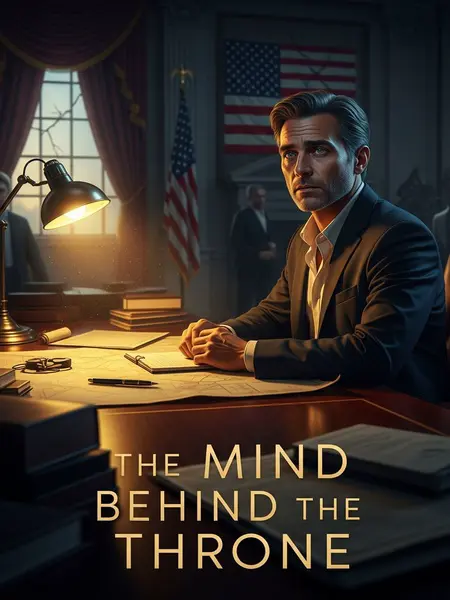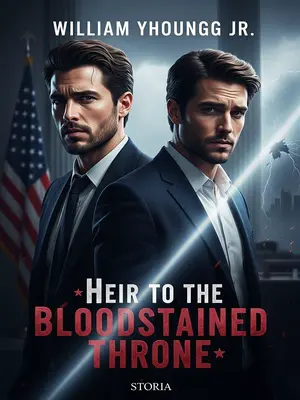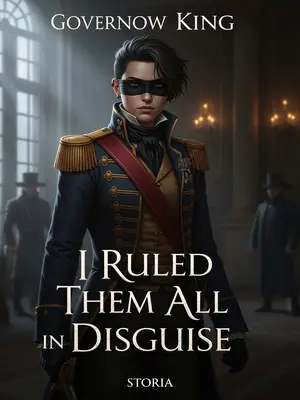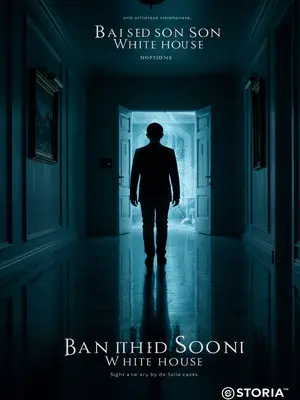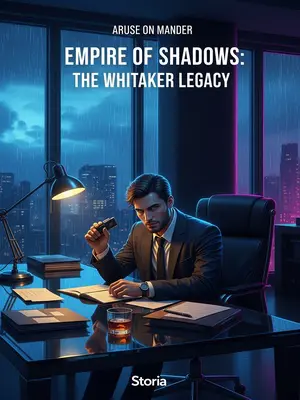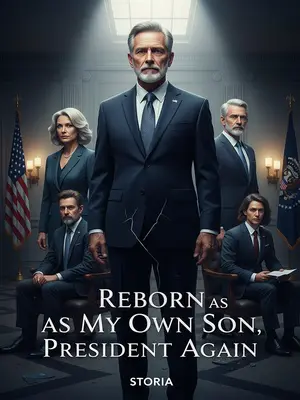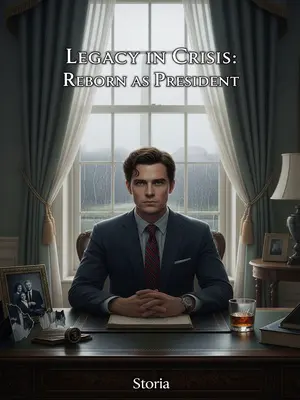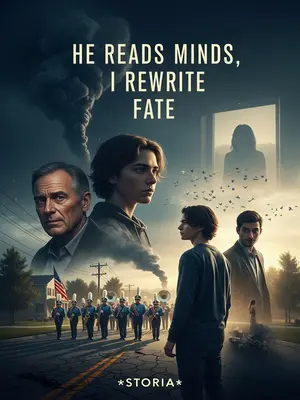Chapter 4: The Blind Spot of Power
One night, Andrew showed up at Newton’s house in plain clothes, collar turned up against the cold, and knocked quietly.
Newton was surprised but knew Andrew wouldn’t come unless something big was up. He let the president in, offered a chair by the fire and a glass of brandy.
“Secretary, you’ve heard about Kansas’s sudden windfall, right?” Andrew’s tone was casual, but his eyes were worried.
After some small talk, Andrew got to the point. The fire crackled as they spoke in low voices.
“Heh… I’ve heard. The Kansas governor’s something else… Maybe he’s mastered alchemy? Ha!” Newton laughed loudly, the sound echoing in the quiet house.
Everyone in the Cabinet knew Newton was obsessed with fringe sciences in his later years, especially the alchemy the folks joked about in Kansas. Tonight, the joke felt real.
Andrew stopped beating around the bush. “The treasury’s empty, but officials are squeezing the people for surcharges. Taxes are high, but the money’s not making it to the treasury—it’s lining corrupt pockets. Any ideas?” Andrew’s voice was tight, weighed down by responsibility.
Newton grinned. “I’ve studied alchemy, but I can’t turn lead to gold. Still, I know all about the loss when refining silver from mixed coins. I’ll write up a method for tracking loss and the real ratio for each type. The government can order all losses made public and collected at a set rate. That’ll stop corrupt officials from making up their own rules.” Newton’s eyes twinkled with mischief and wisdom.
Andrew hadn’t expected Newton’s alchemy hobby to lead to the new "public surcharges" policy. He leaned back, a slow smile spreading.
Newton’s plan worked. The government’s coffers filled, and for the first time in years, they could breathe.
With money in hand, the northwest war was assured. Andrew appointed his man, General Niles, as Grand General to fight Dan Lobb, the rebel. Niles rode out at the head of a glittering column.
But after gaining power, Niles grew arrogant. The old story—power corrupts, and rumors of excess spread.
Niles had hundreds of thousands of troops, far more than the enemy, yet couldn’t find the rebels. The Cabinet grew restless, Andrew’s patience thin.
Worse, Niles kept asking for more money and supplies. The treasury bled, and unrest simmered.
If this kept up, the government wouldn’t last. Andrew needed a fix, fast.
Andrew set up the National Security Council—Thirteenth Son, Timothy Zhang, Michael Mackey, and others—but still, no solution. The council met daily, but nothing worked.
Desperate, Thirteenth Son hesitated, then said, “Since Secretary Newton is chief advisor, and the others are on the Council, why not…” His voice trailed off, the suggestion clear.
He glanced at Andrew. The room was silent, everyone waiting.
Andrew sighed. He hated to trouble Newton at his age, but there was no choice. He ran a hand through his hair, feeling the weight of the world.
So Andrew decreed, “Appoint Newton as Grand Academic Dean of the Hall of Unity to lead the Council, and name him Duke Who Stabilizes the Nation.” The announcement was solemn, the moment heavy.
The Hall of Unity was the highest post for an academic advisor—no one had held it since the country’s founding. The Duke Who Stabilizes the Nation was a Founders’ Medal, never before given to an outsider. Washington reeled.
The Eighth, Ninth, and Tenth Sons stood to object. Andrew shot back, “Can any of you solve the northwest crisis? I’ll make all your sons governors!” No one answered.
They looked at each other and fell silent.
Such favor was unheard of—Newton could only drag his ailing body west.
Months later, Newton reached the Grand General’s headquarters in the northwest. The trip was rough, the weather harsh.
General Niles put on a show of respect, the welcome grand, with a banquet in the main tent. The smell of roast meat and whiskey filled the air, but tension simmered beneath it all.
Niles, now arrogant, wanted to test Newton. After all, Newton was the president’s envoy—challenging him meant challenging the president. The stakes were sky-high.
After a few rounds of whiskey, Niles stood and raised his glass. “I hear Secretary Newton’s a master of optics. Care to share some wisdom?” His tone was mocking, the challenge clear.
Newton saw what was coming—Niles wanted to bring up his old invention, the Newtonian telescope. He smiled coldly, the old spark in his eye.
Newton stood and said, “Niles… your name’s fitting! Light brings brightness; 'Niles' sounds like 'lines.' Light travels in straight lines. You could say your name proves the basics of optics.” A few officers snickered.
Niles was stunned. He hadn’t expected Newton to be so sharp, even now. The room fell silent.
Newton raised his voice. “In optics, there are two things: reflection and refraction!”
He pointed to a mirror. “Niles, see yourself there?”
Niles nodded.
“That’s reflection!”
Newton pointed east. “Can you see Washington from here?”
Niles shook his head.
Newton smiled. “But do you keep the President in your sights?”
Niles was shocked, then dropped to his knees. “How could I not?”
Newton laughed. “You can’t see Washington, but you keep the President in your sights—that’s refraction!” The officers burst out laughing.
Niles realized Newton’s power and regretted trying to outtalk him.
“Niles, stand up and look here!” Newton’s voice was gentle but firm.
He pulled Niles over, set a candlestick on the battle map. The flickering light cast shadows across the terrain.
“Light travels straight. This candlestick blocks the light, so here—right next to the source—is in darkness. That’s the blind spot under the lamp!” Newton tapped a spot on the map.
Niles’s face changed—Newton had pinpointed where Dan Lobb’s main force was hiding.
Niles had known, but left it alone to keep extracting funds. Now, exposed, he claimed he’d just found the enemy’s location.
On Newton’s return trip, Niles fought the rebels and won big. News of victory hit the capital before Newton got back, and the city erupted in celebration.
Because Newton couldn’t ride, he traveled slowly. When word of victory arrived, he was just getting back. The streets were packed with cheering crowds, banners waving in the breeze.
Andrew went out to meet him. The president’s motorcade waited at the city’s edge, a rare honor.
Newton climbed stiffly from his carriage, legs aching but eyes shining.
As he moved to kneel, Andrew caught him. The gesture was warm, almost fatherly.
“Sir, you helped my father—took down O'Brien, pacified the West, fought Martinez, settled the northern border. When I became president, you should’ve been enjoying retirement. But I needed you—your surcharge policy filled our treasury. Now, you’ve gone thousands of miles for me… You’ve supported two generations. Let me support you, just for a while…” Andrew’s voice was thick with emotion.
Andrew walked Newton slowly, then they rode back together in the presidential limo. The sight of the two—one old, one middle-aged—side by side became an enduring symbol of loyalty and service.
Washingtonians watched, some weeping, others tipping their hats in respect.
